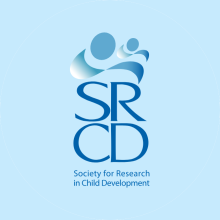July 2012 Spotlight on the SRCD Policy Fellow: Akilah Swinton, Ph.D.
2011-2012 Federal Executive Branch Policy Fellow
Before the fellowship, I had so many ideas about how research could be used to influence policy creation; however, my knowledge of “policy” barely scratched the surface. I had limited knowledge of the complexities of policy-making, how organizations contribute to policy-making at multiple levels, and the various actions and procedures that constitute policy. As I reflect over the past several months, I am amazed by how my perspective on the intersection of science and policy has transformed.
I am finishing up my first year as an Executive Branch Fellow in the Office of Planning, Research and Evaluation (OPRE) in the Administration for Children and Families (ACF). OPRE serves as principal advisor to the Assistant Secretary for Children and Families on increasing the effectiveness and efficiency of programs designed to improve the well-being of children and families. OPRE conducts research and policy analyses and develops and oversees research and evaluation projects to assess program performance and inform policy and practice.
My experience working at OPRE has been unique because I split my time between the Division of Child and Family Development (DCFD) and the Division of Economic Independence (DEI). While DCFD focuses on projects related to child care, child welfare, Head Start, and home visiting, DEI focuses on projects related to employment, strengthening families, Temporary Assistance to Needy Families (TANF), and family economic stability. Thus, having a joint placement has allowed me to have a diverse portfolio including a grant program for dissertation research on child care topics, an evaluation of services helping youth transition out of foster care, the development of a framework for assessing the wellbeing of children receiving child welfare services, and an expert meeting on promoting economic mobility among Hispanic populations. One example of a project that has shaped my understanding of how policy shapes programming is the Health Professions Opportunity Grants (HPOG) program. Through funds authorized for demonstration projects by the Patient Protection and Affordable Care Act, ACF awarded $67 million in grants to 32 institutions and agencies to train lowincome individuals for stable, well-paying careers in healthcare. OPRE is responsible for overseeing the evaluation of these demonstration projects and I have had the pleasure of working with the HPOG evaluation team. My work with HPOG has afforded me the opportunity to not only be directly involved with legislation as it is put into action but has also helped me to gain knowledge about the issues regarding program implementation, data collection, research methodology, and data analysis that often accompany the design of program development and program evaluation.
Besides my work at OPRE, I have been able to participate in multiple learning opportunities, such as attending policyrelevant conferences like the Welfare Research and Evaluation Conference and the Head Start Research Conference and participating in numerous seminars and webinars on topics relevant to my work at OPRE and personal research interests. I have also been fortunate to expand my network greatly as I have developed relationships with other Fellows, professionals working in policy settings, and my wonderful, supportive, and hard-working colleagues at OPRE. Through all of these experiences I have been introduced to this whole new world of policy, applied research, and program evaluation – a world that I barely knew existed before I started the fellowship – and I have begun to gain a great understanding and appreciation of this world. I am extremely grateful to the fellowship program for providing me with exposure to so many new and exciting possibilities that have and will continue to shape my career trajectory. I could never thank SRCD enough for providing this opportunity to me and so many others.
